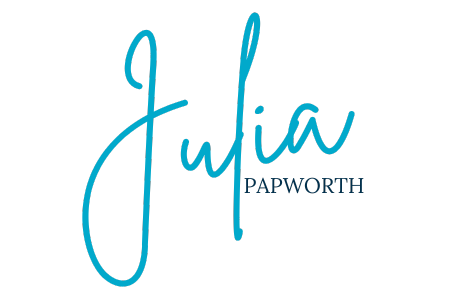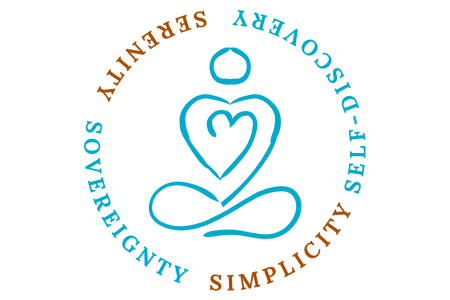
The Lighthouse
Solid, standing above waves, casting a light upon the throws of nature, the lighthouse guides a way, unwavering for those who wish to see.
The self, in some respects is like a lighthouse; but this is just my metaphor, you will probably create your own at the end of this blog. In therapy and coaching we aim to develop a strong, solid, grounded sense of Self, to navigate our way through life without losing a sense of 'who we are'. But sometimes that lighthouse only gets partially constructed in childhood, which means we can feel a bit lost as to our sense of 'Self', or it can occur through a over-estimated sense ofSelf, reflected in other types of difficulties in life. Statements such as "I lack confidence" may arise, but usually there is an underlying sense of self that is somehow perceived as defective. "I am not good enough" being common. So what is this sense of Self anyway? Let's look at some basics from psychology....
The concept of 'Self' has been extensively discussed and dissected in the field of psychology, encompassing a broad array of theories and perspectives. I am using a capital S in Self to represent the nature of referring, at some level, to a sense of identity; I will discuss some of the main approaches to understanding the concept of the Self in psychology, this forms a big picture overview and a level of understanding, as the concept of Self is widely used and can be confusing. Each will be discussed in more detail in separate Blogs
Self-Concept
One of the foundational elements in psychology's discussion of the Self is the self-concept, which pertains to how individuals perceive themselves. Carl Rogers's Self-Concept Theory (Rogers, 1959) has been instrumental in shaping the fields of psychology, psychotherapy, and counselling. It offers a humanistic perspective that emphasises the intrinsic worth of the individual and the inherent drive toward actualisation. Carl Rogers was a pioneer in humanistic psychology. Self-concept theory is generally divided into three main components:
- Self-image (how one sees oneself) - It's not limited to physical attributes but also includes psychological traits, roles, and social identities one adopts. Self-image shapes how individuals think, how they relate to others, and how they interpret their experiences.
- Self-esteem (how much value one places on oneself) - This is the evaluative component of self-concept and refers to how positively or negatively individuals regard themselves. High self-esteem generally results in a more optimistic view of life and challenges, while low self-esteem often leads to a more pessimistic outlook.
- the ideal Self (how one wishes to be) - This represents the person an individual wishes to be. Rogers argued that the closer one's self-image and ideal self are to each other, the more fulfilled and balanced the person is likely to be.

The Narrative Self
Some psychologists propose that the Self is best understood as a narrative or a story that people tell themselves. Dan P. McAdams (McAdams, 2001) has been a prominent voice in this field, discussing how life stories not only shape our Self-concept but also influence our behaviour and choices. It is a commonly heard phrase "if you want to change your life, change your story", however it is not a simple as this: it may not do justice to underlying trauma, unconscious beliefs which may require an expert companion (therapist) to unlock the deeper levels of embodiment.
The 8 C's of Self in Internal Family Systems (IFS):
The Self is the central, core aspect of a person in the IFS model (Schwartz, 2021) and one which contains eight relatively stable states: clarity, courage, confidence, creativity, calmness, curiosity, compassion, and connection. These stable states can help bring the energetic qualities into reflection; to allow the unhealed parts of us (and there are no bad ones!) into a place of acceptance, integration and healing.

The Self in Positive Psychology
In the realm of Positive Psychology, the focus often shifts to character strengths, virtues, and aspects of the self that contribute to well-being and happiness. Martin Seligman's (2002, cited in Hart 2021) wellbeing model; authentic happiness framework addresses how the realisation of one's best Self can lead to a fulfilling life; there are three pathways to achieving this;
- the pleasant life
- the engaged life
- the meaningful life
This is just a starting point to begin to understand the sense of a self as it can facilitate healing, and growth in life; it is a concept which arrises in everyday language and is a common theme in therapy, along with ones own philosophical position of being human in terms of religion, life and death; its a complex subject!
We want to develop a strong, stable and helpful sense of self.
What metaphor would you use for Your Self?
References:
I try to keep many of the references using journals to 'open access' so that readers have the choice of reading further if they wish to, however some are behind publisher paywalls, which I can access being part of a University, but the public cannot. Other references are books and occasionally web-links.
Bandura, 1977, Self-efficacy: Toward a Unifying Theory of Behavioural Change. https://educational-innovation.sydney.edu.au/news/pdfs/Bandura%201977.pdf
Hart, R. (2021) Positive psychology: The basics. London ; New York: Routledge, Taylor et Francis Group.
Rogers, C.R. and Koch, S. (1959) A theory of therapy, personality, and interpersonal relationships, as developed in the client-centered framework. New York: McGraw-Hill. https://www.beeleaf.com/wp-content/uploads/2017/09/rogers_chapter_in_koch-1.pdf
McAdams, D. P. (2001). The Psychology of Life Stories. Review of General Psychology, 5(2), 100–122. https://doi.org/10.1037/1089-2680.5.2.100
Northoff et al., (2006) Self-referential processing in our brain—A meta-analysis of imaging studies on the self. https://doi.org/10.1016/j.neuroimage.2005.12.002
Palmer, S. and Whybrow, A. (2018) Handbook of Coaching Psychology a guide for Practitioners. London: Routledge.
Schwartz, R.C. (2021) No bad parts: Healing trauma and restoring wholeness with the internal family systems model. Boulder, CO: Sounds True.

